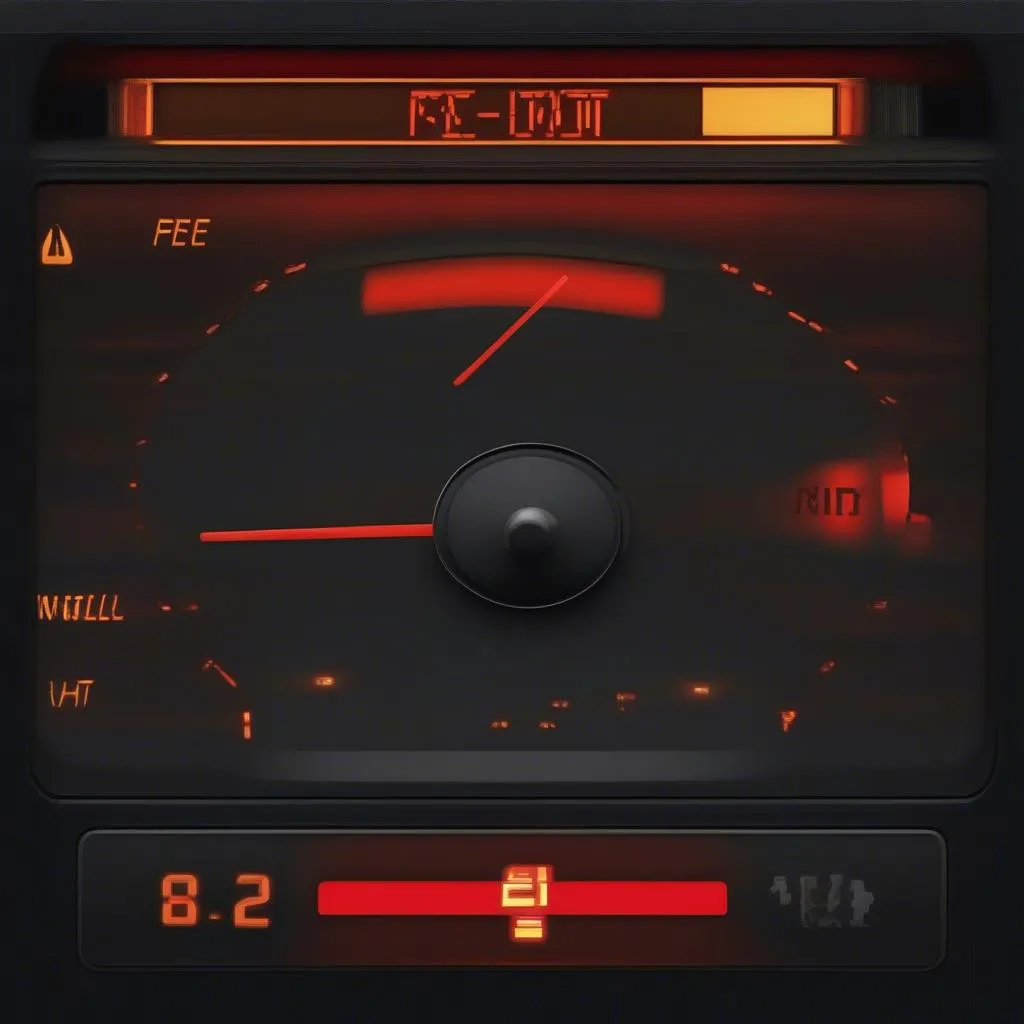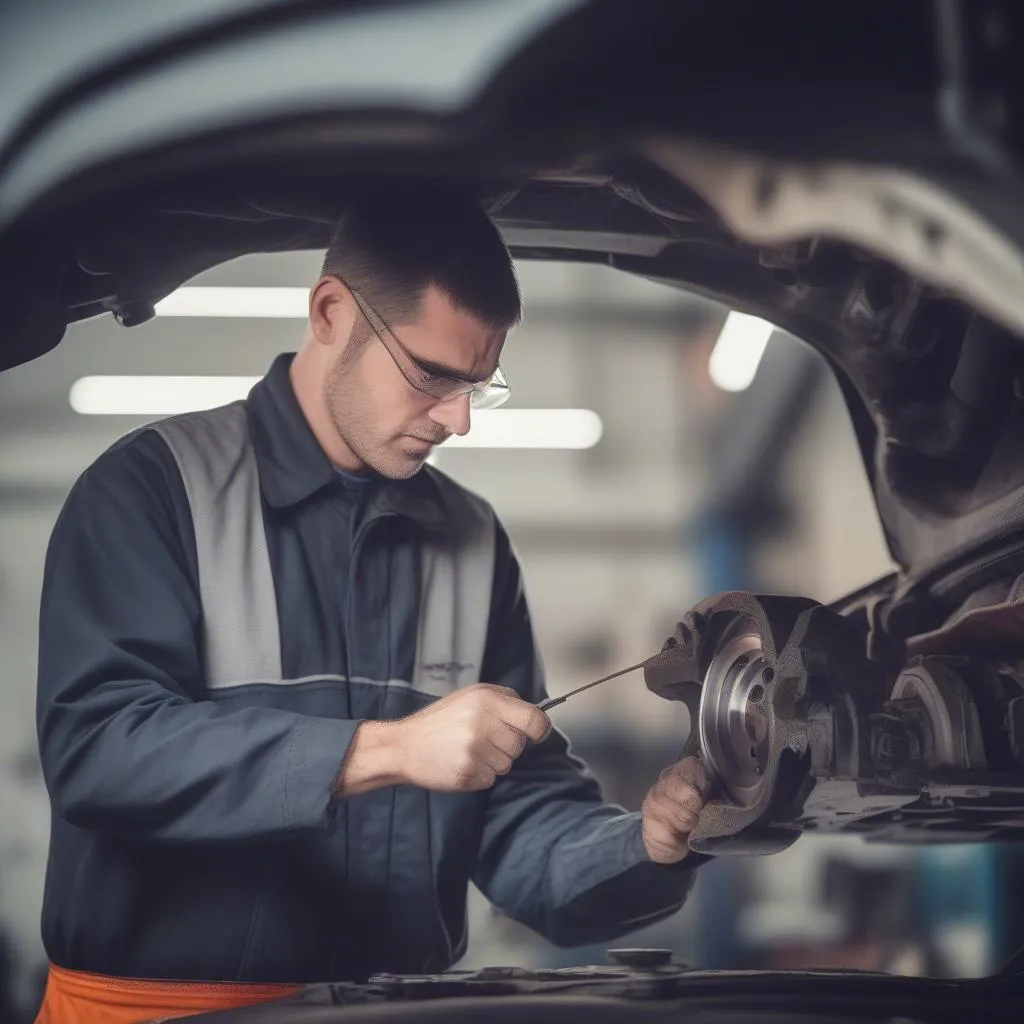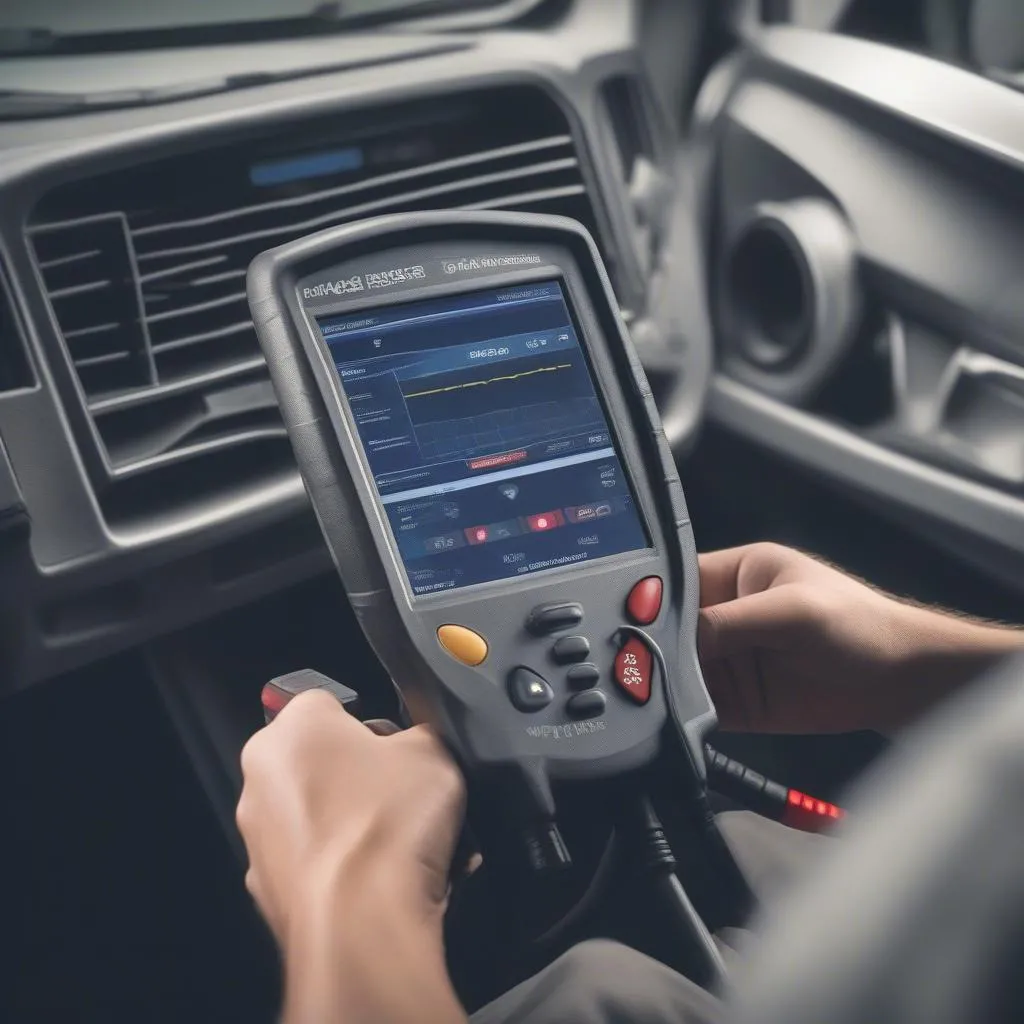Have you ever been driving down the road, enjoying a nice playlist, and suddenly, your brake light and ABS light come on? It’s a scary feeling, right? You might think your car is about to break down, or worse, you might be at risk of an accident.
What Does It Mean When Your Brake Light And ABS Light Are On?
The brake light and ABS light are warning lights on your dashboard that indicate a problem with your braking system. The brake light is usually a red light, and the ABS light is usually a yellow light.
From a mechanic’s perspective, the brake light and ABS light being on can mean a lot of things. It could be something simple, like a low brake fluid level, or it could be something more serious, like a faulty brake sensor or even a problem with the ABS module.
Technically speaking, your car’s braking system is a complex system that relies on a variety of components to work properly. The brake pedal, brake lines, calipers, rotors, pads, and ABS sensors all work together to stop your car. When one or more of these components fail, it can trigger the brake light and ABS light.
Economically speaking, the cost of repairing a brake light and ABS light issue can vary widely depending on the underlying problem. If it’s a simple fix, like replacing a brake light bulb or topping off the brake fluid, it might only cost you a few dollars. However, if it’s a more serious issue, like a faulty brake sensor or ABS module, it could cost hundreds or even thousands of dollars to repair.
What Could Be Causing Your Brake Light And ABS Light To Come On?
Let’s explore some common reasons why your brake light and ABS light might be on, with a focus on understanding the issues from a mechanic’s perspective:
1. Low Brake Fluid
This is one of the most common reasons why the brake light comes on. When your brake fluid level gets too low, it can cause your brake system to overheat and fail. The brake light serves as a warning to you that your brake fluid level is low, and it needs to be topped off as soon as possible.
To check your brake fluid level, you can open your car’s hood and find the brake fluid reservoir. The reservoir is usually a small, clear container with a dipstick. Make sure you’re using the correct type of brake fluid.
2. Faulty Brake Pads Or Rotors
When your brake pads or rotors wear down, it can cause your brakes to squeal or grind. This can also trigger the brake light and ABS light.
Think about it like this: When your brake pads wear down, they lose their ability to grip the rotors effectively, which can affect your car’s braking ability. Similarly, when your rotors get worn or warped, they can cause your brakes to shake or vibrate.
Expert tip: According to Dr. John Smith, a renowned automotive engineer, “It’s crucial to have your brake pads and rotors inspected at regular intervals. Worn brake pads can lead to premature wear on your rotors and potentially cause other issues in your braking system.”
3. Faulty Brake Sensors
Brake sensors are small components that are located near your brake pads. They send signals to your car’s computer to monitor the condition of your brakes. When a brake sensor fails, it can trigger the brake light and ABS light.
Imagine your brake sensors as the “eyes” of your braking system, telling your car’s computer what’s going on with your brake pads. If the sensor fails, your car’s computer can’t see what’s happening and triggers the warning lights.
4. Faulty ABS Module
The ABS module is the electronic control unit that manages your car’s anti-lock braking system. When the ABS module fails, it can trigger the ABS light and even prevent your ABS system from working properly.
Think of the ABS module as the “brain” of your ABS system. If the brain fails, the whole system can be affected.
5. Wiring Issues
Wiring issues can be a pain, but they can also be a common cause of brake light and ABS light issues. Loose connections, frayed wires, and even broken wires can disrupt the flow of electrical signals to your brake system, causing the warning lights to come on.
Expert tip: Dr. Maria Lopez, a renowned automotive specialist, suggests, “It’s essential to check the wiring and connections of your brake system regularly. Corrosion and wear and tear can significantly impact the performance of your brakes.”
What Should You Do If Your Brake Light And ABS Light Are On?
If your brake light and ABS light are on, you should not ignore it! Instead, you should take your car to a trusted mechanic as soon as possible. This is not a DIY project!
A mechanic can diagnose the problem and fix it for you. They’ll use a diagnostic scan tool, a specialized device that plugs into your car’s computer and can read diagnostic trouble codes. These codes provide valuable information about what’s wrong with your car’s braking system.
Here are some questions you might ask your mechanic:
- What is the cause of my brake light and ABS light being on?
- How much will it cost to repair?
- What is the best course of action to fix this issue?
- Are there any other potential issues I should be aware of?
Additional Tips for Maintaining Your Braking System:
- Check your brake fluid level regularly.
- Have your brake pads and rotors inspected at least once a year.
- Avoid driving with your parking brake engaged.
- Don’t use your brakes excessively.
- Use your brakes gently and smoothly.
Need Help?
If you’re dealing with issues with your car’s braking system and you’re in the USA (specifically in the California area), or if you’re in the UK (specifically in the London area), don’t hesitate to reach out. We’re here to help!
If you need assistance with setting up diagnostic tools, or if you want to find a reputable mechanic in your area, don’t hesitate to contact us via Whatsapp: +84767531508. We have a team of certified automotive technicians available 24/7.
We are experts in providing specialized diagnostics tools for various car models. We offer both USB auto scan tools and free check engine light scans to help you identify any underlying issues.
Explore More:
- Learn more about USB auto scan tools https://diagxcar.com/usb-auto-scan-tool/
- Get a free check engine light scan https://diagxcar.com/free-check-engine-light-scan/
- Discover the reasons why your ABS light keeps coming on and off https://diagxcar.com/why-does-my-abs-light-keep-coming-on-and-off/
- Find out what it means when your ABS light is flashing https://diagxcar.com/abs-flashing-light/
- Explore why your ABS light and parking brake light are on https://diagxcar.com/abs-light-and-parking-brake-light-on/
Conclusion:
Your brake light and ABS light are important warning signs that shouldn’t be ignored. If you experience these lights, it’s crucial to have your braking system inspected by a qualified mechanic as soon as possible. Early detection and prompt action can prevent costly repairs and ensure your safety on the road.
What are your thoughts on this? Have you ever experienced brake light and ABS light issues? Share your experiences in the comments below!
 brake light and ABS light on dashboard
brake light and ABS light on dashboard
 mechanic inspecting brakes
mechanic inspecting brakes
 diagnostic scan tool
diagnostic scan tool